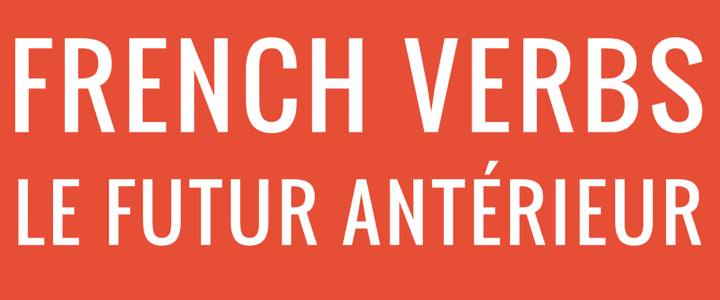Understanding more than one language gives you an advantage in a number of situations. Whether you’re traveling to a foreign country and bartering for a souvenir, applying for a job with international relations, or even ordering from a local restaurant, having a second language in your back pocket is a plus.
Few languages sound more royal and smooth than French. It’s one of the Romance languages and will no doubt impress whoever is in your company when you switch to French while asking for directions or ordering a meal. But like learning any second language, discovering the intricacies of French can be challenging. In fact, the conjugation of French verbs is often considered more difficult than in some other languages. But with our helpful French verbs study guide, we explain how to use and practice verbs properly.
When you study French verbs for a while, you probably know about le présent, le passé composé, l’imparfait, et le futur. You may also know something about reflexive verbs and verbs of motion and their particularities in the passé composé. You may even be familiar with le passé simple. While you might consider yourself fairly fluent in this wonderful dialect, surprises in foreign languages are always around the corner.
For instance, what happens when you want to describe an action that hasn’t happened yet, but that will be complete before a particular action or time in the future? In English, we use the future perfect tense to describe this. For example:
1) I will have done my homework by the time I go to sleep.
2) The construction will be finished before school starts.
3) They will have left for the concert before my friend arrives.
In French, the equivalent tense is the futur antérieur, or the anterior future. Like the future perfect in English, it defines a particular point in time in the future and looks back towards (but not past) the present. The sentences above would, using the futur antérieur, translate to:
1) J’aurai fait mes devoirs avant que je m’endors.
2) La construction sera fini avant la rentrée.
3) Ils seront partis pour le concert avant que mon ami arrive.
The construction of this tense is very similar to the passé composé. In the futur antérieur, there are the same two parts: The auxiliary verb (avoir or être) and the past participle.
Choose the auxiliary verb in the same way as you would for the passé composé. It will usually be avoir, unless the main verb is a verb of motion or a reflexive verb. In those cases, use être. Now instead of conjugating the auxiliary verb in the present tense, conjugate it into the future. Here is a review of their future forms:
avoir être
j’ aurai je serai
tu auras tu seras
il / elle / on aura il / elle / on sera
nous aurons nous serons
vous aurez vous serez
ils / elles auront ils / elles seront
Now form the past participle in the same way you would for passé composé. Remember to check for gender and number agreement if the auxiliary verb is être. Then put the two together, and you have the futur antérieur. Look back at the examples above in French to see if you can recognize how the verb was formed. Then look at the examples below:
1) Tu auras assisté au concert quand j’arrive.
2) En août, je serai restée a San Francisco depuis cinq ans.
3) Ils auront rendu leurs livres à la bibliotèque avant la fin de l’année.
Now try a few of your own.
1) Elle _________________ (marcher) cinq kilometres tous les jours cette semaine.
She will have walked five kilometers every day this week.
2) Quand nous arrivons, ils _________________ (cuisiner) un repas delicious.
When we arrive, they will have cooked a delicious meal.
3) Apres nous vacances cet été, nous _________________ (aller) en cinq pays différents.
After our vacation this summer, we will have gone to five different countries.
4) Tu _________________ (se laver) avant 8h si tu veux partir a l’heure.
You will have washed yourself before 8am if you want to leave on time.
Now check your answers :
1) aura marché
2) auront cuisiné
3) serons allé(e)s
(Use the extra “e” only if you are imagining a group with all girls.)
4) te seras lavé(e)
(Like #3, use the extra “e” only if you imagine you are speaking to a girl in this sentence.)
If your passé composé and future tenses are solid, hopefully this wasn’t too difficult. If you did well on the first two but missed #3 or #4, consider also whether or not this was due to a need to review verbs of motion or reflexive verbs. If you are doing well, now that you have an introduction, try using the passé antérieur as you speak and write with your friends, classmates, and colleagues.
They will no doubt be impressed with your new-found vernacular skills (especially if you use them to order a round of Boulevardiers at a fine French watering hole!). You can cheers to finally being able to put the futur antérieur to good use.
As with trying to learn any new skill, conjugating and using French verbs correctly takes plenty of practice. As long as you maintain a consistent schedule toward your French studies, you’ll speak more confidently with native French speakers in France and other French locales.
A great way to advance your understanding is to read as much as you can in French. Whether you read a short story or a news article, it will help internalize French’s core grammar rules so that the conjugation will come more naturally to you. But it never hurts to go back and review your French verbs study guide now and again.
For more help studying French verbs, work with a one-on-one tutor. French tutors are available to work with you for live online lessons, or in your home depending on location and availability. Search for your tutor now!
 Post Author: Carol Beth L.
Post Author: Carol Beth L.Carol Beth teaches French lessons in San Francisco, CA. She has her Masters in French language education from the Sorbonne University in Paris and has been teaching since 2009. Learn more about Carol Beth here!
Suzy S.


